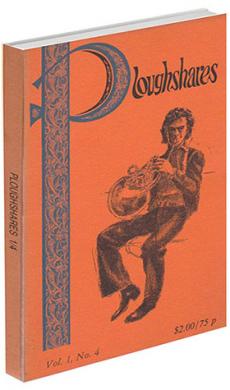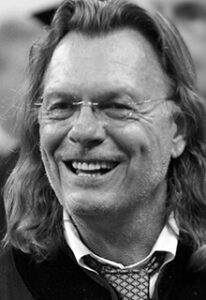rev. of High on Gold by Lee Richmond
This first novel is neither polished and gemlike nor gusty and pungent, nor funny, nor exceptionally brilliant, nor prophetic in its earnestly Mailerian effort to place third world pain, protest, and pioneering into philosophical, historical and literary perspective, but the book has other solid virtues, worth the reader's patience to absorb. The time is the mid-sixties (no Viet Nam), the unlabeled post-beatnik, pre-hippie watershed not merely of bewilderment and disaffection, but of "folk-revival," which Richmond traces from its drug-liberated communal innocence in Cambridge to its apparent perversion, thanks both to Corrupt Society (from without) and human nature (from within) to revolutionary violence in California, and a dream, or a need, betrayed. But if that sounds like, say, Don Mitchell's
Thumb-Tripping, where a similar disillusionment takes place in a single summer, Richmond is writing a much bigger, more intelligent and complicated book. Act I: Gerveys LeCompte, Carribean black, child of privilege and parental indifference. graduates from Harvard/BU/whatever, gives away his books, and starts living for life, friendship, dope, raps, goodtimes, sex and relatively stable love — the last with Alison, daughter of
Mr. and
Mrs. Bridge, independent but for purse strings in Cambridge; they shack up, money runs out, communal roommates shred their privacy, he can't satisfy her . . .landlord hassles, cops . . . everything snaps and they head separately for promised land, Anahita, California, clued in by seasoned avatars. Act II: the story of Joshua Aarons, which sets everything in relief and opens up interesting parallels. Aarons belongs to history, took part in the early settlement of California, moved with legendary figures (Sutter, Brannan, Pickett, Brigham Young), was in on the Gold Rush, "discovered" Anahita, died there a hermit in a cave, maddened by the inhumanity and greed of the white peril. So too, we muse, Gerveys LeCompte and Alison; their moment is history too, their friends legends of the future, the moral of their experience more momentous than we realized — and perhaps as doomed to distortion. And if the connections sound obvious, they are rigorously earned; the Aarons section, if creaky, is a
sustained tour de force — no corners cut. Composed of Aaron's "journals," which are presented and glossed by an unimaginative historian, the style is true in diction, metaphor, and voice to say, Parkman's
The Oregon Trail, and the events, characters and scenes for the most part free of imaginative cliches that movie lore almost preordains in such attempts. The Donner Cannibals are appropriately pathetic and horrifying (like p.o.w.'s); the Indians mysterious and human; the frontiersmen more like Conrad's Kurtz than Disney's Daniel Boone. Act III returns to time present and traces the fortunes of Gerveys and Alison on Anahita. The counter culture phenomenon in which they share is now itself "gold," as its commercial worth as news is exploited by
Truth (or
Time) magazine, and the process of becoming history seems inseparable from corruption. One of the best things in the book is first the coining of the label "hippy" by a
Truth editor, his search for a satisfactory reality to fit the term, his tailoring of fact to marketable fiction, and then the impact of his article on the "original" hippies themselves — "It that me?" Alison wonders, and writes her parents, while Gerveys consciously attempts to keep on
being history, tries to be a Black Panther, throws a firebomb, yet by nature remains an onlooker while more authentic figures die for the cause, and must finally accept his own clownish individuality: "He can feel life return to him in the awakening clownish reflexes, the artistic clumsiness and perfect error. I may be a coward, but praise be to Dionysus, I'm a hungry coward" (420). He has been haunted by Aaron's fate and grown past it somehow, as has Alison, as must we; neither hermit, nor mystic, nor misanthrope, nor revolutionary martyr either, he keeps on going in a world of social and moral evils with at least this affirmation of his necessary humanity.
As a fiction writer, Richmond can do intellectual young people, black and white, male and female; he can do straights (the
Truth staff) and weirdos, Indians and Frontiersmen, middle American parents, and sharply and compassionately rendered proles. But the book seems to me better conceived than imagined or told. Its greatest strength is a solidly sane, intelligent, responsible reflection on the meanings of American Experience (then, now), and if that automatically puts
High on Gold a league apart from mindless chronicles, guidebooks, and uninformed and undigested slices of the drug culture, it also somewhat limits imagination and prevents it from discovering and intensifying any special strangeness of its own.

